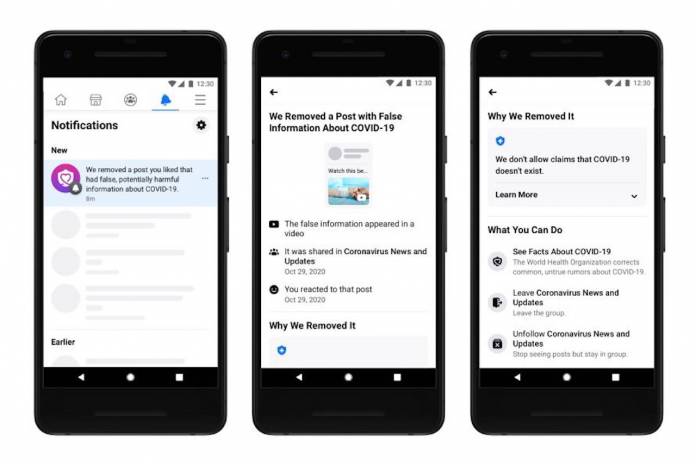
If you’ve engaged with content that has been determined as misinformation, specifically regarding COVID-19, you might have seen information on your News Feed telling people that the content was removed for violating their policy. This was probably for the most part not very helpful and so they’re now implementing a more direct approach by notifying users directly when they have interacted with a deleted post and leading them to more reliable information from reliable sources in their Coronavirus Information Center.
Social media platforms have taken a tough stance in trying to remove all the misleading information about COVID-19 as our knowledge and understanding of it can sometimes be a matter of life and death. Facebook started cracking down on these posts last April and showing notices in your feed if you happened to like, commented, or reacted to any of these posts. They have redesigned this process after doing a bit more research on how people react to things like this.
So you will now get a notification if you’ve interacted with any of these posts and if you click on it, you’ll see a thumbnail of the post and a reminder of how you engaged with it (in case you’ve forgotten that you did). They will also explain why it was removed and also why it has been flagged as misinformation. More importantly, you’ll get resources on facts about COVID-19 through their information center as well as other actions you can take like unfollowing a page or group where that false information came from.
The reason for the change was that basically, people did not understand why they were receiving that notification. “There wasn’t a clear link between what they were reading on Facebook from that message and the content they interacted with,” said Valerio Magliulo, a product manager at Facebook, to Fast Company. They also tried to make the notification as nonjudgmental as possible and more informative.
If you’ve been receiving several notifications to this effect, it might be time to rethink the content you’re reading on the platform or anywhere else. There are a lot of more reliable sources from experts and medical professionals so it might be time to listen to them before it’s too late.









